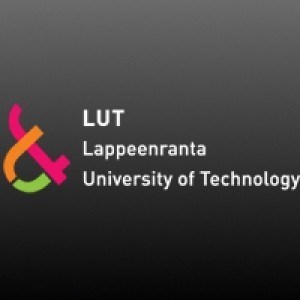Photos of university / #universityofhelsinki
The Master's Degree Programme in Agricultural, Environmental and Resource Economics at the University of Helsinki offers students a comprehensive education in the economic analysis of agricultural, environmental, and natural resource issues. The program is designed to equip students with the skills necessary to understand and address complex challenges related to sustainable development, resource management, and environmental policy. Throughout the program, students explore how economic principles can be applied to improve the efficiency and sustainability of agricultural practices, manage natural resources responsibly, and develop policies that promote environmental conservation while supporting economic growth.
The curriculum combines theoretical and empirical approaches, allowing students to acquire a strong foundation in microeconomics, macroeconomics, environmental economics, and econometrics. Students also gain practical skills through case studies, simulations, and research projects, preparing them for careers in academia, government, international organizations, and the private sector. The programme emphasizes the importance of interdisciplinary knowledge, integrating insights from ecology, policy analysis, and social sciences to foster a holistic understanding of environmental and resource issues.
Students have the opportunity to engage with ongoing research conducted by faculty members who are recognized internationally for their work. The program often includes guest lectures, workshops, and seminars with leading experts in the field. Additionally, students can undertake practical training and internships to gain valuable real-world experience. The university’s strong network of alumni and partnerships with organizations relevant to agricultural and environmental economics further enhance career prospects for graduates.
Graduates of the programme are prepared to analyse, develop, and evaluate policies related to environmental conservation, agricultural development, and sustainable resource use. They are equipped to work in various sectors, including consultancy, government agencies, research institutions, and international development organizations. The programme’s multidisciplinary approach and focus on sustainability make it an ideal choice for students passionate about making a positive impact on environmental and economic systems globally.
The Master's Degree Programme in Agricultural, Environmental and Resource Economics (AGERE) at the University of Helsinki offers a comprehensive and interdisciplinary education designed to equip students with the analytical tools and knowledge necessary to address complex challenges related to agriculture, environmental sustainability, and resource management. The program combines economic theory, quantitative methods, and policy analysis to prepare graduates for careers in academia, government, international organizations, research institutes, and the private sector.
Throughout the programme, students explore key concepts in microeconomics, macroeconomics, and econometrics, applying these principles to real-world issues such as sustainable agriculture, environmental conservation, climate change, and natural resource management. The curriculum emphasizes both theoretical understanding and practical skills, including data analysis, economic modelling, and policy evaluation. This prepares students to assess economic policies related to the environment and agriculture, and to develop innovative solutions that promote sustainable development.
The programme is structured to include coursework, seminars, and a thesis project. Students have the opportunity to specialize in areas such as environmental economics, resource economics, or agricultural economics, tailoring their studies to their interests and career goals. Collaboration with research institutions and participation in international projects enrich the learning experience and provide valuable networking opportunities.
Graduates of the AGERE programme will be well-equipped to work in roles that require deep economic expertise combined with an understanding of environmental and resource issues. They will be capable of conducting independent research, analyzing policy impacts, and contributing to sustainable development strategies at national and international levels. The programme’s multidisciplinary approach ensures that students are prepared to meet the demands of a rapidly changing world where economic and environmental considerations are increasingly intertwined.
The Master’s Degree Programme in Agricultural, Environmental and Resource Economics (AGERE) at the University of Helsinki requires students to fulfill a comprehensive set of academic and project-based requirements to successfully complete the programme. The curriculum is designed to equip students with advanced knowledge and skills in the fields of agricultural economics, environmental economics, and resource management, integrating theoretical understanding with practical applications. Students are expected to complete core courses that cover fundamental topics such as microeconomics, macroeconomics, statistics, and econometrics, providing a solid foundation for specialized studies. Elective courses are available in areas like sustainable agriculture, environmental policy, natural resource management, and food economics, allowing students to tailor their studies according to their interests and career goals. To graduate, students must accumulate a total of 120 ECTS credits, including coursework and a Master’s thesis. The thesis is a central component of the programme, requiring students to conduct original research under the supervision of faculty members, often addressing real-world issues related to food systems, environmental sustainability, or resource policies. Throughout the programme, students are encouraged to participate in seminars, workshops, and internships that facilitate practical experience and professional networking. The programme emphasizes analytical skills, economic modeling, data analysis, and policy evaluation, preparing graduates for careers in academia, governmental agencies, NGOs, or the private sector. Language requirements typically include proficiency in English, as all courses are taught in English. Admission to the programme requires a relevant bachelor’s degree, basic knowledge of economics, and demonstrated motivation for advanced studies in the fields of food, environment, and natural resource economics. Overall, the AGERE programme aims to develop experts capable of analyzing and solving complex issues related to food security, environmental sustainability, and resource management in a global context.
The Financing Studies for the Agricultural, Environmental and Resource Economics (AGERE) master's program at the University of Helsinki are designed to equip students with the financial skills necessary to succeed in the field of resource management and environmental economics. As the program is primarily funded through a combination of tuition fees, governmental funding, and competitive research grants, students should be aware of the various financial sources supporting their studies. Tuition fees are applicable to non-EU/EEA students, and the university offers scholarship opportunities aimed at alleviating the financial burden. These scholarships are awarded based on academic merit and cover partial or total tuition fee waivers. For EU/EEA students, there are no tuition fees, but students might need to budget for living expenses, including accommodation, health insurance, and daily costs.
The university also provides various financial aid options, including student discounts, part-time job opportunities in campus facilities, and grants for students with special financial needs. In addition, many students fund their studies through external scholarships from government agencies, private foundations, and international organizations, which can cover tuition fees, living costs, or research project expenses. The University of Helsinki encourages students to explore and apply for these external funding sources early, as competition can be intense.
Furthermore, students are advised to plan their finances carefully, considering the cost of living in Helsinki, which includes accommodation, transportation, food, and personal expenses. The university’s Career Services often assist students in finding part-time employment opportunities aligned with their studies and competencies. Overall, financing studies in the AGERE program requires strategic planning and awareness of the various funding streams available. The combination of institutional scholarships, external grants, and personal resources provides a comprehensive support network to facilitate successful completion of the program.
The Master's Programme in Agricultural, Environmental and Resource Economics (AGERE) at the University of Helsinki offers students a comprehensive education in the economic analysis of agricultural, environmental, and natural resource issues. The program is designed to equip students with the skills needed to analyze complex economic problems related to sustainable development, food security, climate change, biodiversity, and natural resource management. Students learn to apply advanced economic theories and quantitative methods to real-world challenges facing rural and urban environments. The curriculum combines core courses in microeconomics, macroeconomics, econometrics, and specialized courses in agricultural economics, environmental economics, and resource economics. Emphasis is placed on the development of analytical capabilities, policy analysis skills, and understanding of the global economic context.
The programme prepares graduates for careers in research, policy-making, consultancy, and international organizations that focus on sustainable development and resource management. The program is taught in English and benefits from strong connections with international research institutions, environmental agencies, and the agricultural sector. Students have opportunities to participate in internships, applied projects, and multidisciplinary research activities. The university provides access to modern facilities and databases for economic analysis, fostering a practical learning environment. Graduates of AGERE are equipped with the knowledge and skills needed to address urgent global issues such as climate change mitigation, sustainable agriculture, and conservation strategies. The program emphasizes critical thinking, interdisciplinary collaboration, and methodological competence, making it a leading choice for students interested in solving environmental and resource-related economic problems around the world.

